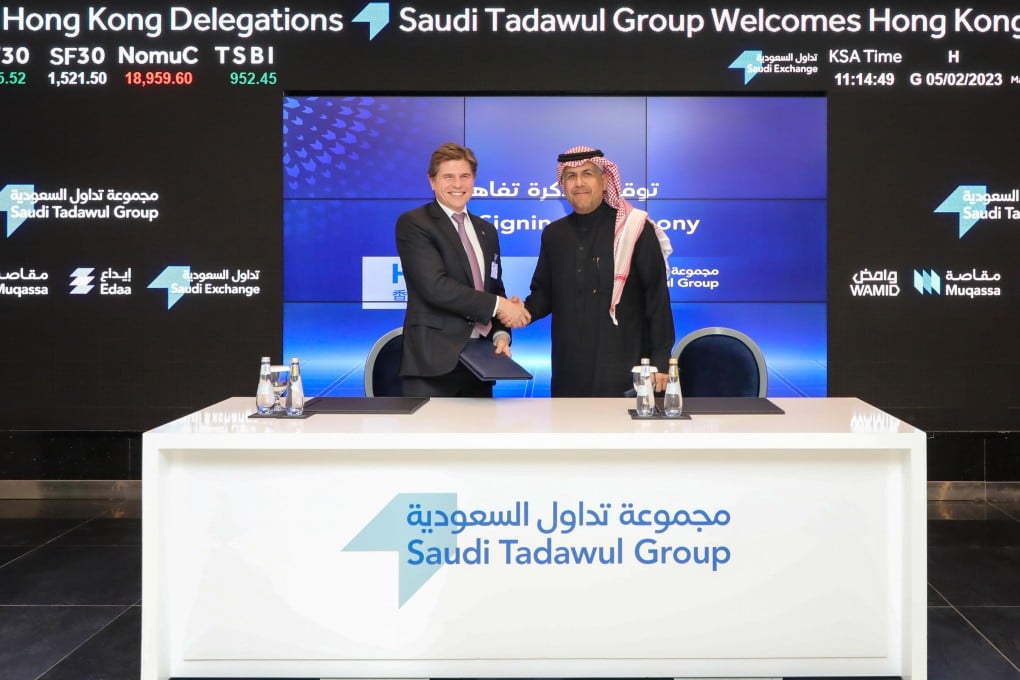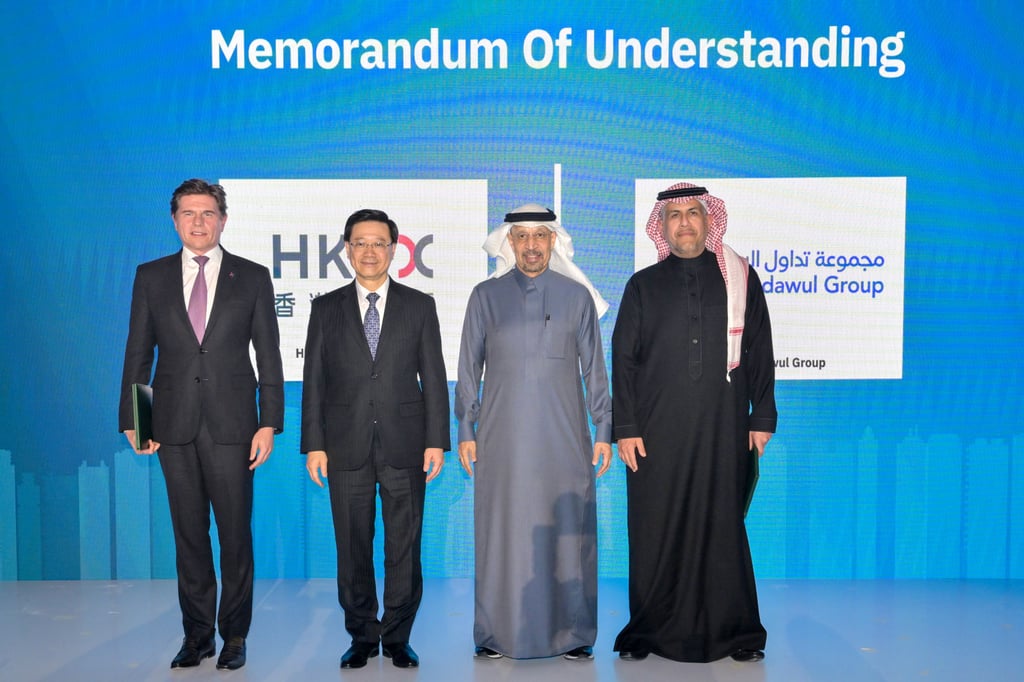Advertisement
HKEX’s accord with Tadawul may pave the way for Aramco’s Hong Kong listing, making the stock available to China’s investors, brokers say
- ‘This MOU brings us one step closer towards enabling cross listings and other areas of collaboration between Saudi Arabia and Hong Kong’, Tadawul says
- Oil giant Saudi Aramco and other Middle Eastern companies that list primarily in Hong Kong can be traded by mainland investors via the Connect scheme
Reading Time:3 minutes
Why you can trust SCMP
2

The memorandum of understanding (MOU) signed by the stock exchange operators of Hong Kong and Saudi Arabia could pave the way for more companies to list their shares for trading in the Asian city, giving one of Asia’s financial hubs a leg up in the race to host initial public offerings (IPOs), analysts said.
Advertisement
Hong Kong Exchanges and Clearing (HKEX) signed an accord with Saudi Tadawul Group Holding over the weekend to work together on cross listings, fintech, environmental, social and corporate governance (ESG) and other areas of interest to both exchanges, according to a joint statement.
The MOU, signed during Chief Executive John Lee’s visit to the Middle East, could lay the foundation for the kingdom’s oil company Saudi Aramco – whose US$29.4 billion IPO in 2019 on the Tadawul remains the world record – to list its shares in Hong Kong, brokers said.
“Companies such as Saudi Aramco could benefit from a primary listing in Hong Kong as they can be invested by mainland investors”, said Tom Chan Pak-lam, permanent honourable president of Institute of Securities Dealers in Hong Kong. “Investors of Hong Kong and mainland China will be interested to invest in Aramco and other Middle East companies as the economic development have been positive in recent years”.

“This MOU brings us one step closer towards enabling cross listings and other areas of collaboration between Saudi Arabia and Hong Kong”, said Tadawul’s CEO Khalid Al Hussan. “As we seek to position the Saudi capital market as an investment hub between East and West, we are seeing increased interest from issuers and investors in Asia”.
Advertisement
Besides cross listing, the MOU will also enable HKEX and Tadawul to work on fintech, ESG and other areas of interest to both exchanges. Hong Kong is leading the way in making all publicly traded companies include ESG goals in their mandatory financial disclosures.

Advertisement